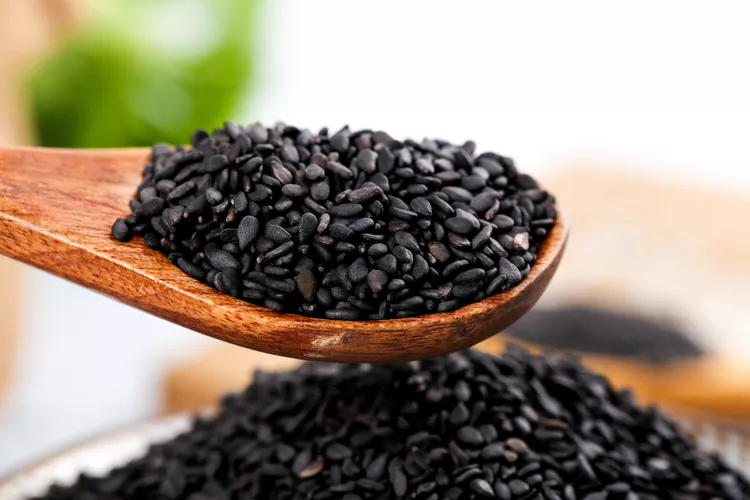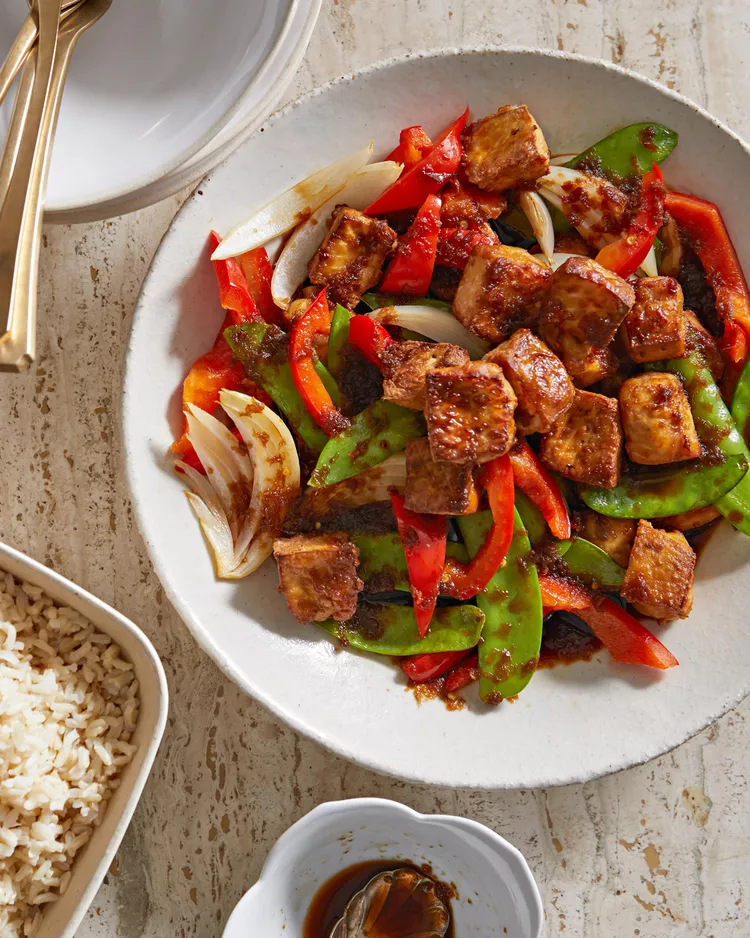In terms of culinary influence, it’s tough to find an ingredient used in as many cultural cuisines as sesame seeds—they’re found in Asian, Latin, Middle Eastern, and Indian culinary traditions, to name a few. Many of us automatically think of white sesame seeds when we think of this seed, but black sesame seeds have just as much (and maybe even a little more) to offer. Here’s what to know about this sibling of the traditional white sesame seed.
What are black sesame seeds?
Black and white sesame seeds come from the same plant, Sesamum indicum, a bushy green plant reminiscent of overgrown basil. White sesame seeds are the product of removing the black outer shell (or hull) from black sesame seeds. Because of this, they share the same botanical scientific name. Black sesame seeds have been a culinary staple for over 5,000 years and have been particularly influential within Chinese culture for centuries.
These tiny dark seeds provide a mild, nutty, earthy flavor that lends itself to a variety of savory dishes—and even some sweet ones. Because of their intact hulls, you can also use them to add a satisfying crunch to any dish (that you won’t get with their white counterparts).
Black Sesame Seed Benefits
Because black sesame seeds and white sesame seeds come from the same plant, their health benefits are quite similar. However, because black sesame seeds retain their outer shells, they offer enhanced nutrition and increased levels of plant compounds, vitamins, and minerals.
Enhances Gut Health
Black sesame seeds are loaded with fiber, both soluble and insoluble. This helps maintain digestive regularity while also addressing digestive concerns like diarrhea and constipation. Plus, the fiber found in black sesame seeds feeds the healthy bacteria that make up our gut microbiome, improving whole—body health.
Full of Plant Compounds
These seeds are abundant with immune-boosting plant compounds, especially sesamol, phytosterols, and lignans like sesamin. These compounds contain potent antioxidant effects, which help to reduce inflammation and eliminate free radicals associated with chronic diseases and aging-related conditions. A review published in Molecules echoed this, citing that the compounds found in black sesame hold antidiabetic, anticancer, and anti-aging properties.
May Improve Heart Health
This small superfood even has the power to improve heart health. This is partially due to its high concentration of mono- and polyunsaturated fats. Unsaturated fats like these are considered heart-healthy fats; they positively influence cholesterol levels in our blood and won’t contribute to plaque buildup along our blood vessels or clogged arteries. This study found sesame seeds help reduce blood pressure levels in those with hypertension or prolonged elevated blood pressure.
Regulates Blood Sugars
When it comes to blood sugar regulation, black sesame seeds deliver. The healthy fats they contain (along with their fiber content) help slow digestion, dulling the blood sugar response. This yields a more gradual increase in blood sugars, allowing the body more time to metabolize the sugars effectively. These benefits are illustrated by research, with one study revealing blood sugar-reducing effects in individuals with type 1 diabetes.
Delivers Many Other Nutrients
Black sesame seeds contain many other nutrients—protein, B vitamins, copper, manganese, calcium, magnesium, and phosphorus. All of these (with the exception of B vitamins) are integral in forming healthy bones, maintaining glowing skin and hair, and more. Meanwhile, protein and B vitamins aid in maintaining healthy energy levels, helping you tackle your busiest days.
Ways to Enjoy Black Sesame Seeds
Given that this ingredient is somewhat niche, you may be wondering how to include it in your everyday life. You can find black sesame seeds in their whole form online and at most grocery stores, and they’re also available in oil or capsule form as a dietary supplement.
When considering how to add whole black sesame seeds into your everyday diet, here are some delicious culinary options:
- Sprinkled onto salads and soups
- Tossed into vegetable, noodle, or rice dishes
- Used as a crust for protein options like fish, chicken, tofu, or rice paper parcels
- Blended into black sesame tahini to be added to dressings, dips, and sauces
- Mixed into cottage cheese with vegetables for a hearty snack
- Added to certain baked goods (often crackers), for those courageous and creative bakers out there
- Black sesame oil can be used just like toasted sesame oil—in cooking or as a flavoring agent in many dishes, but it particularly shines in Asian-inspired meals.




















